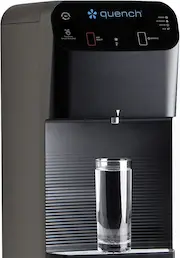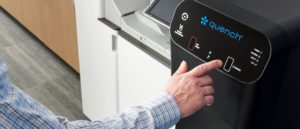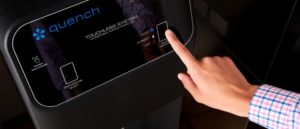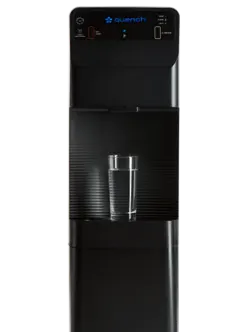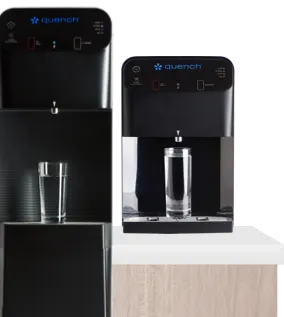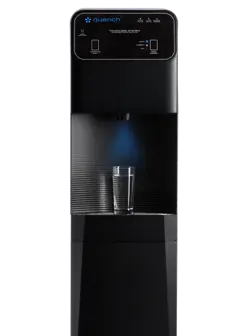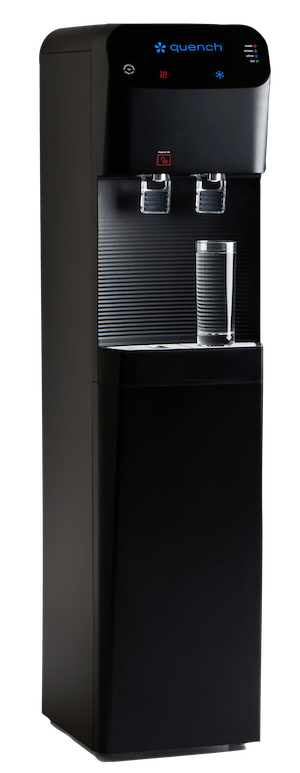Multiple studies over the years have underlined the importance of hydration, highlighting that proper water intake throughout the day keeps the body and brain functioning correctly. Moreover, as workplaces navigate uncertainty and fierce competition, employee performance has become an increasingly important issue as a key factor in driving business success.
Luckily for employers, offering valuable tools and training to your employees so they can take their performance to the next level could be as simple as providing easy access to great-tasting, clean drinking water at work. Read on to learn more about Occupational Safety and Health Administration (OSHA) regulations surrounding water at work and how you can improve your water supply to better support the well-being and productivity of your workers.
How the Law Provides for Necessities
The U.S. Department of Labor states that every employer across the country is required to provide drinking water. Specifically, OSHA regulations report this workplace drinking water must:
- Adhere to public health standards
- Come from a drinking fountain, covered container, or single-use bottle
Employers might ask whether tap water from the restroom is considered a proper water system for workers. However, it’s important to note that, unlike a bathroom tap, a drinking fountain is a water outlet that’s specifically intended for drinking water only. Thus, a sink or hand basin wouldn’t meet the OSHA standard set forth.
In addition, local water quality can vary significantly from one work area to another and, unfortunately, there are areas of the U.S. where tap water isn’t as clean or drinkable as one might assume. This puts workers at risk for potential exposure to contamination, which can have considerable effects on their health and productivity and, as a result, your bottom line.
When Drinking Water Isn’t Allowed in the Workplace
The U.S. Department of Labor notes that healthcare workers are in an unusual position in terms of drinking water requirements. Even bottles with lids may become contaminated when handled, and rules regarding exposure to blood-borne pathogens mean employers must implement provisions that prioritize workplace safety. Employees working in areas where occupational exposure to hazardous or toxic chemicals is possible are likely subject to a workstation water-drinking ban — despite OSHA regulations.
With this in mind, OSHA recommends regular, formalized water breaks alongside refreshment breaks. The regularity of the water breaks could be based on the type of facility or individual workplace conditions. But, it’s critical to keep in mind that if employees are feeling thirsty, they’re most likely already dehydrated, according to a report from Baylor College of Medicine.
Our Workplace Is Without Water Today. Should Employees Still Be At Work?
A disruption in your workplace water supply is a serious health and safety issue, and inevitably affects multiple facets of your business. Firstly, employees are legally entitled to clean washing facilities: If toilets can’t flush and workers can’t wash their hands, the possibility of bacteria or germ contamination increases significantly. As a result, employers are required to provide an alternative source of water or risk the consequences of non-compliance with employment law.
Giving employees access to sufficient amounts of drinking water is equally important to combat heat exhaustion and dehydration across industries. If your workplace water fountain or water dispenser isn’t working, the alternative is bottled water supplied at the employer’s expense. Admittedly, employers sometimes turn a blind eye, but ignoring the basic needs of employees can become problematic. And, while bottled water solutions may be a sufficient option when strictly necessary, it’s not the most convenient, cost-effective, or sustainable choice to ensure employees stay hydrated.
Where Can SMBs and Large Organizations Look For More Advice?
If you’re not sure whether the current systems you have in place are sufficient, you can request a free health and safety consultation with OSHA. This on-site consultation program offers no-cost and confidential occupational safety and health services to small- and medium-sized businesses (SMBs) throughout the country, with priority given to high-hazard worksites. Their purpose is to identify workplace risks and make recommendations to mitigate them and help you comply with legislation. Choosing this route is advantageous because you can discover what OSHA recommends before your workplace has the opportunity to receive any formal complaints. Ultimately, this can save you the costs of litigation and compliance penalties.
Larger organizations, on the other hand, are required to have trained health and safety representatives who should understand the rules and regulations surrounding workplace drinking water and other facilities. If there are any areas that these professionals find unclear, they can consult their training provider or address questions to OSHA directly.
Workplace Drinking Water — Go Beyond the Minimum With Quench
Providing clean drinking water is the bare minimum required by U.S. law. When employers don’t follow these obligations, they open themselves up to legal action while risking workplace dissatisfaction and high staff turnover. You can go beyond the minimum and encourage your staff to drink cool, clean water with a bottleless water cooler and advanced filtration system from Quench.
A bottleless water dispenser connects directly to your building’s existing water line, which ensures your valuable employees, guests, and customers have access to an endless supply of drinking water whenever they need it. These machines are not only more space-efficient and cost-effective than alternative solutions, but they also leverage state-of-the-art filtration technology to remove sediments, contaminants, and bad tastes while adding minerals and electrolytes for a delicious and refreshing result.
Your business can take advantage of a bottleless cooler to guarantee compliance with OSHA regulations while enjoying the benefits of a more hydrated, motivated, and productive workforce. Ready to bring your workplace water quality to the next level? Try our product finder to discover the bottleless water dispenser that’s the right match for your organization, or get a free quote to get started.
